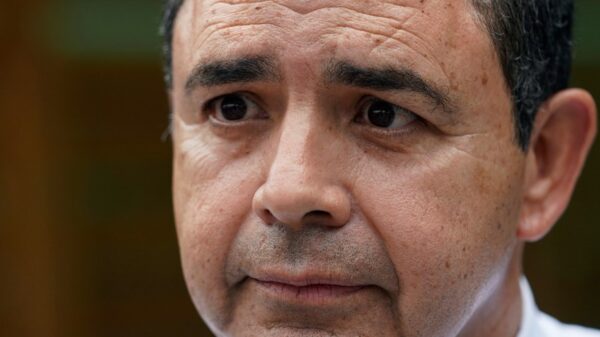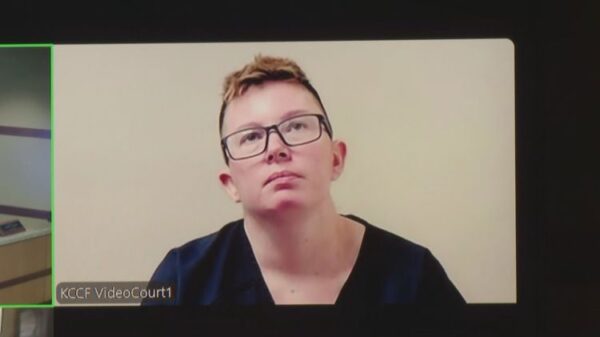UPDATE: A former Riverside County sheriff’s deputy, Oscar Rodriguez, was sentenced to one year in jail for voluntary manslaughter in a case that has captured public attention due to its shocking love triangle dynamics. The sentencing took place at the Larson Justice Center in Indio, California, on October 31, 2023. Rodriguez is also facing 10 years of felony probation following his conviction for the fatal shooting of Luis Carlos Morin in January 2014.
The case stems from a complicated relationship involving Rodriguez and Diana Perez, the mother of Morin’s children. During the trial, it was revealed that Rodriguez had developed a personal vendetta against Morin, which culminated in a reckless confrontation leading to Morin’s death. Jurors cleared Rodriguez of first-degree murder but found him guilty of voluntary manslaughter.
During the court proceedings, Deputy District Attorney Jennifer Garcia condemned Rodriguez’s actions, stating, “Mr. Rodriguez is a liar and a deceitful person.” The prosecutor emphasized that Rodriguez acted on his own accord, disregarding his training as a law enforcement officer. On the night of the shooting, Rodriguez tracked Morin to a birthday party in Palm Desert and ambushed him as he returned home.
At approximately 9:40 PM, Rodriguez approached Morin, who attempted to flee. In a chaotic struggle, Rodriguez drew his weapon and shot Morin in the chest, killing him instantly. Witnesses reported hearing shouts for Rodriguez to refrain from using his firearm.
Despite facing a maximum sentence of 21 years, Rodriguez received a significantly lighter penalty, a decision that has sparked outrage. Judge Otis Sterling suspended the state prison sentence, opting instead for the 365-day jail term. This decision means Rodriguez will serve no time in state prison, a point that has raised eyebrows among those advocating for justice for Morin’s family.
Morin’s family previously sued the sheriff’s department and secured a $7 million settlement for wrongful death, highlighting the case’s broader implications on law enforcement accountability. The emotional fallout from this case has also been profound for the community, with many expressing disbelief over the leniency of Rodriguez’s sentence.
Looking ahead, the case continues to resonate within legal and law enforcement circles, raising critical questions about police conduct and the ramifications of personal relationships affecting professional duties. As the community processes this verdict, calls for reform and accountability in similar cases are likely to intensify.
Stay tuned for further developments as this high-profile case unfolds.





































































